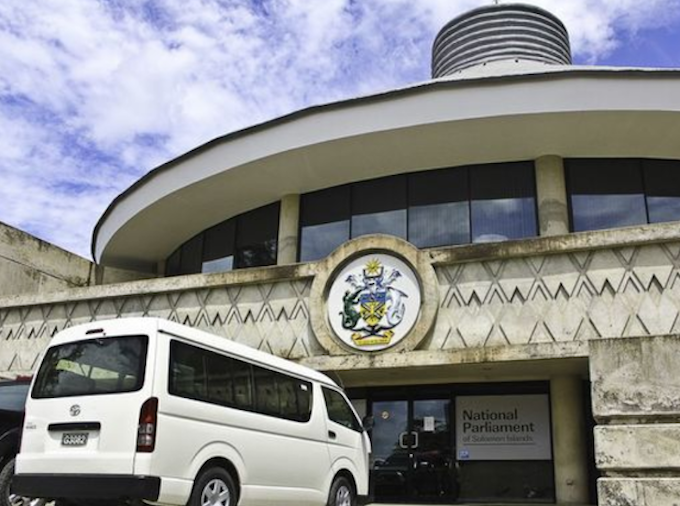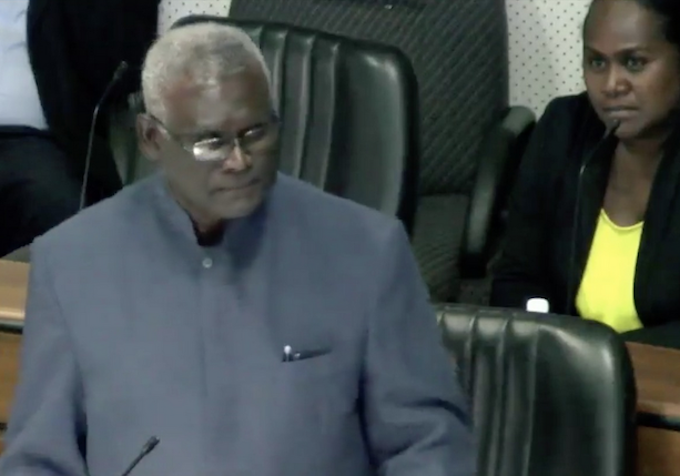
The Solomon Islands prime minister came in for searing criticism when he faced a confidence vote in Parliament today.
A motion of no confidence against Manasseh Sogavare was debated amid tight security in the capital Honiara, where hundreds of regional security forces have deployed following major political unrest less than two weeks ago.
About 250 defence force and police personnel from Australia, Papua New Guinea, Fiji and New Zealand were on high alert in anticipation of potential unrest around the outcome of the vote.
- READ MORE: Solomon Islands PM survives no-confidence vote after unrest
- Other Solomon Islands crisis reports
As expected, the pro-China prime minister survived the no confidence vote with the support of 32 MPs, while 15 voted against him.
Local media reported that numerous local families departed from Honiara aboard interisland ferries to return to home villages to avoid potential unrest in the capital, where many shops and schools had also closed.
The motion was tabled by opposition leader Matthew Wale, who has accused Sogavare of allowing corruption to fester, and of treating the people of Malaita province with contempt.
Malaitans played a central role in the late November protest that sparked the unrest, which left extensive destruction in Honiara, prompting Sogavare’s request for regional security help.
Suidani denies instigation claims
Malaita’s provincial Premier Daniel Suidani, whose administration has fallen out with the national government, especially over the country’s move to switch diplomatic ties from Taiwan to China, has denied claims by the coalition that he instigated the unrest.
Wale told Parliament that the actions of the rioters should not obscure the real issue behind the unrest.
“We must condemn all the criminality in the strongest terms, but it pales, Mr Speaker, in comparison to the looting happening at the top,” he said.
Speaking in favour of the motion, former prime minister Rick Hounipwela described Sogavare as the ultimate opportunist whose accession to prime minister over four stints “has always been under abnormal circumstances”.
Blaming the prime minister for negligent management of the country’s finances, Hounipwela said the country’s corruption problem had deepened under Sogavare’s rule.
“We’ve experienced huge tax exemptions worth millions of dollars given to the people who least needed it, usually the loggers and mining operators.”

In today’s debate on the motion, Sogavare said the motion had been filed against the backdrop of an illegal attempted coup.
‘Stand up to tyranny’
“When we are under attack from forces of evil, we must stand up for what is right, we must stand up to this tyranny. We cannot entertain violence being used to tear down a democratically elected government.”
Sogavare rejected the opposition’s accusation of corruption against him.
Hounipwela, the MP for Small Malaita, accused the prime minister of using the pandemic State of Emergency to give himself authoritarian powers.
He also claimed Sogavare had used police to repress public criticism of his leadership, and of directing foreign embassies and high commissions in the country to notify the government of their moves around the provinces.
“To vote against [the motion], members would be aiding and abetting his zeal for power and to rule this country with an iron fist. That’s what we see as a track record,” Hounipwela said.
This article is republished under a community partnership agreement with RNZ.









































